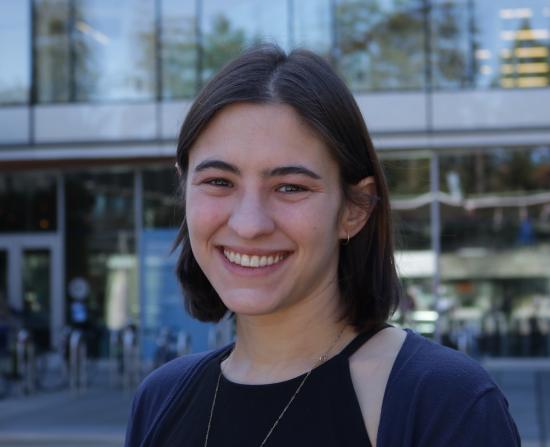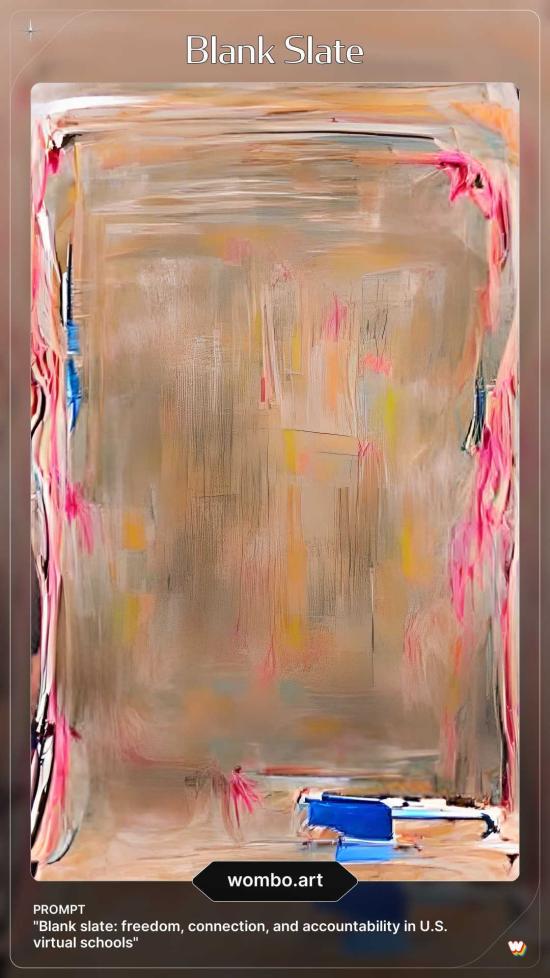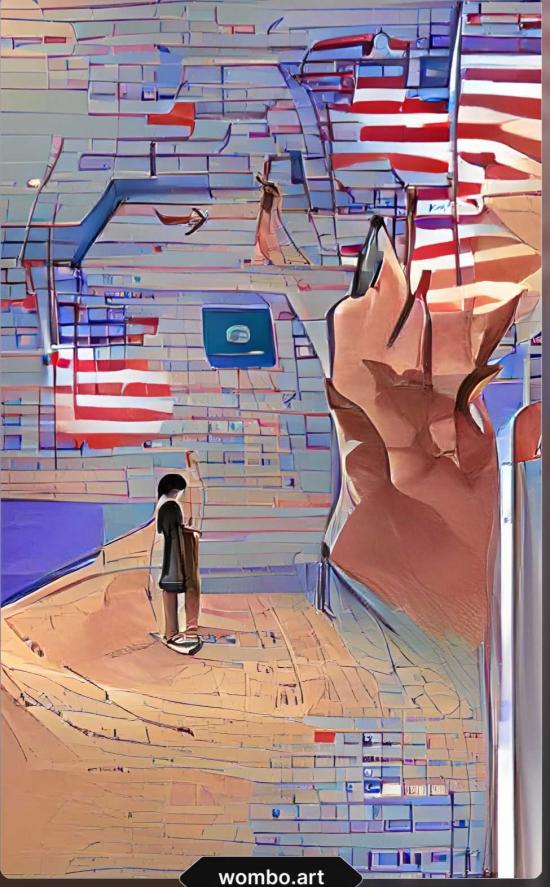Blank Slate: Freedom, Connection, and Accountability in U.S. Virtual Schools
Anne Jonas
For a small portion of U.S. schoolchildren and their teachers, going to school online was the norm even before the COVID-19 pandemic forced a mass shift to remote learning. Finding conventional schooling ill-suited to their needs, this diverse group turned to virtual schools in an effort to distance themselves from harms they associate with the traditional school experience, balance their external responsibilities and interests with education and work, and focus on the pursuit of learning while extracting what they saw as extraneous elements packaged into standard schools. Virtual schools here propose datafication as a means to achieve freedom for those who chafe under the requirements of traditional schooling.
Drawing on interviews and observations with teachers, parents, students, and industry professionals across the U.S. from 2018 - 2020, I find that virtual schools are fueled by existing social inequality, precarity, and destruction of public infrastructure, and contribute to realigning responsibilities from the public and private sectors onto individuals and families. However, this shift is often welcomed or at least tolerated by participants in exchange for a promise to accommodate the diverse conditions under which students and teachers work, and the ability to transform their varied labors into commensurable data without requiring adherence to rigid norms of behavior.
I explore how this process unfolds in a constant tangle between precarious webs of care developed through intensive relational labor and coercive efforts to produce quantifiable metrics legible to the state. While digitization does often increase the sense of distance and opacity between teachers and students, interfering with teachers’ core ability to practice attunement, teachers develop strategies to recuperate visibility and practice caring responsiveness. Affective and relational labor undergirds the functioning of these virtual school systems, providing a way to produce necessary data to meet accountability standards without standardization and to emotionally sustain teachers, students, and parents through difficult times. Yet it also provides workers with leverage against attempts at automation and “de-skilling,” leaving both companies and cash-strapped districts with reasons to work towards diminishing or replacing these methods in search of higher profits and unchecked authority. These processes threaten to reinstate the very harms participants sought to use virtual schools to escape.
As debates about online education reach new heights due to COVID-19, my research advocates expanding beyond narrow measures of scholastic achievement in evaluating virtual schools. Instead, I suggest that we more broadly consider what role digital platforms could play in meeting the diverse needs of participants in contemporary life and challenging the unequal distribution of life chances that has so long prevailed within the American education system.
This lecture will be held both online & in person. You are welcome to join us either in South Hall or via Zoom.
Anne Jonas, Ph.D., is a qualitative researcher exploring the interrelation of digital technologies and social life, drawing on feminist science and technology studies, critical HCI, education, communication, and information studies. Her dissertation, Blank Slate: Freedom, Connection, and Accountability in U.S. Virtual Schools, supervised by Professor Jenna Burrell, uses ethnographic methods to investigate the experiences of teachers, students, and families in U.S. based online schools and the role of these institutions in a larger school choice landscape and increasingly digitized workforce structured by social inequality.
She is currently a Computing Innovation Fellow working with Professor Jean Hardy at Michigan State University.
At the UC Berkeley School of Information, she designed and taught a graduate seminar, “Ethnographies of the Digital,” and served as a graduate student instructor for the core master’s program course “Social Issues of Information.” From August 2018 to August 2020 she was the co-director of the Center for Technology, Society & Policy. She has been a student research awardee of the Institute for Research on Labor and Employment and a research grantee of the Center for Long-Term Cybersecurity on several collaborative projects. In graduate school, she was a member of the Algorithmic Fairness and Opacity Working Group and the Biosense Initiative, and completed a Designated Emphasis in Science and Technology Studies.
This presentation is a summary of her dissertation research.













